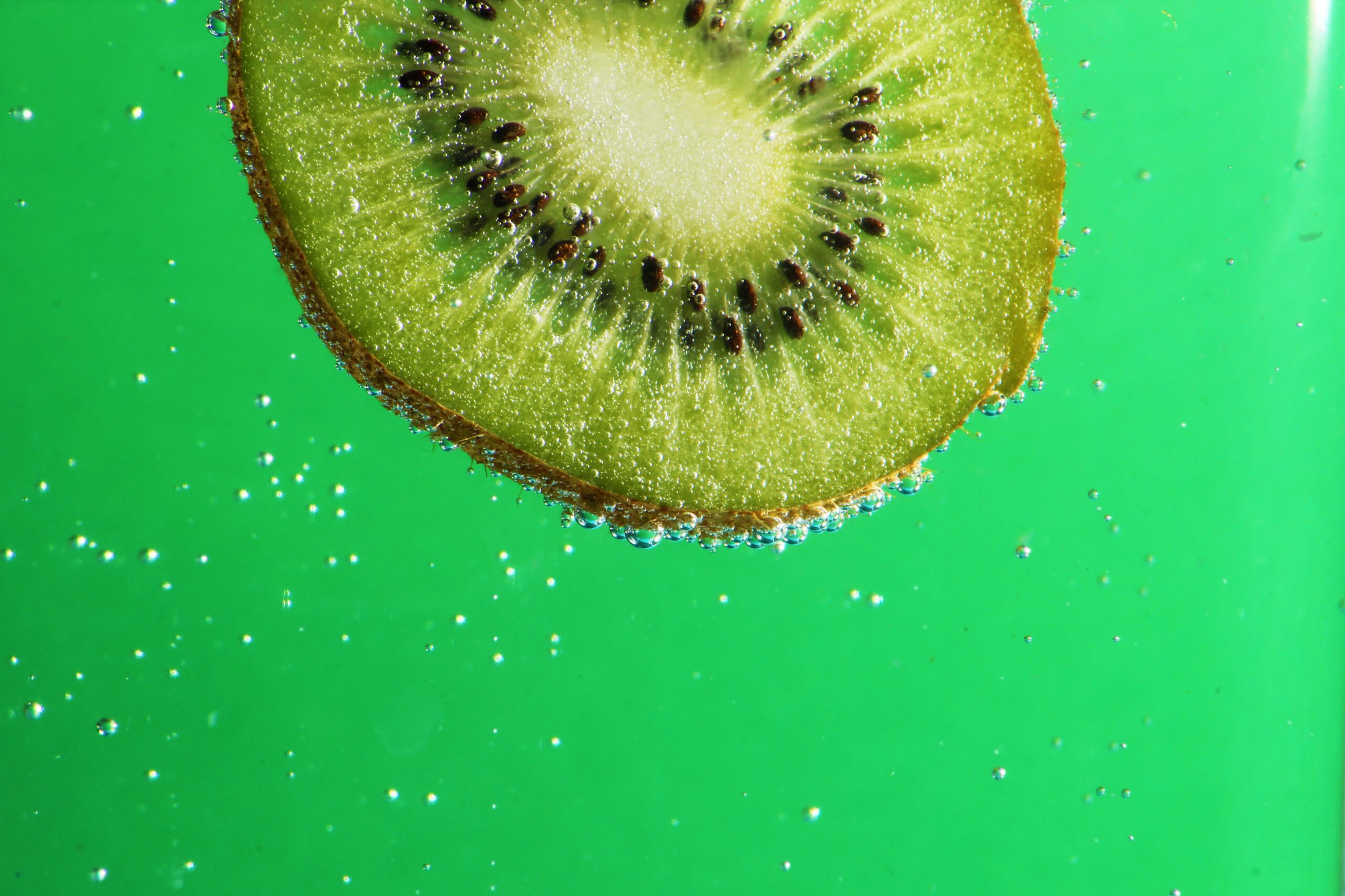11 Causes of Decreased Appetite (and How It May Harm Your Hair)
We know that our hair growth process is very energy demanding – and, where do we get our energy from? From the foods we eat!
So, what happens when you don’t have a strong appetite and you’re struggling to eat enough for your body’s needs? And, what are the causes of decreased appetite?

It seems like over-eating gets all the hype; so much so that it’s rare to see a conversation about the consequences of undereating. To be clear, this article is not about eating disorders or body dysmorphia. Eating disorders such as anorexia nervosa or bulimia require specialized attention and treatment. If you feel like you are struggling to eat because of body image issues and disordered eating, you can learn more about getting the help that you need here.
The focus of this article is to talk about why you may not have a strong appetite despite knowing that you need to and wanting to eat more. Often times when I work with clients, they are surprised to learn that they have been unknowingly undereating for a long time.
Read: Could you actually be eating too little?
They may have had a specific calorie goal in mind that was less than what their body needed to thrive over the long term or they had been unaware of just how much they had been eating. When I give them new calorie and macronutrient goals and have them track their food intake, it’s not uncommon for clients to tell me that they struggle to eat enough.
There are many consequences to undereating and it often takes a significant amount of time before we start to notice issues. Undereating can not only deprive our body of hair-essential macronutrients and micronutrients, but it can also have serious impacts on our adrenal and thyroid health as well as disrupt our hormones (and remember, our hair is very sensitive to hormonal changes).
Read: Hair loss after weight loss
Assuming that there is not an underlying medical condition (e.g. eating disorder) what are some reasons that someone would struggle to eat enough for their body’s unique needs?
Top 11 Causes of Decreased Appetite
- You’re not eating foods that you like.
If we don’t enjoy the foods that we’re eating it can decrease our appetite. As we try to eat “healthier” or more nourishing foods, it can be difficult to change our taste preference. For example, a big bowl of pasta may sound way more appetizing than zucchini noodles. On top of that, we may not be preparing foods in a way that makes them their most appetizing. For example, if we’re not familiar with how to prepare new foods, we may be accidentally over or undercook something.
Tip: Learn new cooking skills by taking an in-person or online cooking class, subscribe to a recipe blog or use an app like RealPlans to discover new recipes, experiment with seasonings (spices, vinegars, oils, etc.) to help give your food an extra kick of flavor.
- You don’t eat enough variety.
We can get bored with the foods that we’re eating and lose our appetite for them. This is actually a strategy that some people use to lose weight; eating only a limited number of plain foods.
Tip: Eat foods that are in-season, picked at their peak, and packed with flavor. This will help expose you to new flavors and textures and keep you from getting bored and losing your appetite. This is also a great time to try new recipes and different spices or cooking techniques to create interesting and dynamic foods that you’ll crave.
- You drink too much caffeine.
Caffeine acts as an appetite suppressant – meaning that the more of it we drink, the less hungry we will feel.
Tip: Limit caffeine to a maximum of 400 mg per day (the equivalent of four 8oz cups of coffee). Different people tolerate caffeine differently. You may even want to try forgoing caffeine for a time being if you’re struggling to eat enough.
- You are under a lot of stress or anxiety.
Over-eating (or stress eating) isn’t the only reaction that we can have to stress. High stress can actually reduce our appetite and really turn us off to the idea of food.1
Tip: Address the sources of your stress and find a way to manage it better (for example, setting better boundaries or working with a mental health professional). You can also try incorporating a regular meditation practice into your day using apps like Headspace or Insight Timer. Even doing a brief deep breathing exercise immediately prior to a meal might help your body feel better prepared to receive nourishment.
Read: 8 Easy ways to boost your digestion and heal your gut

- You’re too busy to eat or you just plain forgot.
This one could also be said to be related to stress, but sometimes clients tell me that they honestly just forget to eat. Maybe they get distracted by their kids or wrapped up in a work project and, before they know it, they’ve forgotten to eat that day.
Tip: Create time in your schedule for regular meal times. These can be calendar invites (that show as “busy” in your calendar so that they won’t be scheduled over) and they can have an alarm associated with them so that they won’t slip your mind.
- Your meals are too large.
Sometimes the idea of a large or heavy meal can sound unappetizing and we use that as an excuse to skip eating altogether.
Tip: Eat smaller meals more often to help increase appetite. Make sure to eat healthy proteins and fat with each meal (or snack, as they may be) versus carbohydrates on their own. This will help keep our blood sugar stable and make sure we’re getting the correct balance of nutrients.
- You’re skipping breakfast.
Eating breakfast may actually help to kick start our appetite for the day. Many of us may be tempted to skip breakfast as a time saver (or perhaps to try intermittent fasting). Either way, skipping breakfast may set the wrong tone for our appetite the rest of the day.
Tip: Eat breakfast within 2 hours of waking up. Remember not to eat carbohydrates on their own, but add in healthy proteins and fats to keep your blood sugar stable throughout the day. If you find that you struggle with appetite first thing in the morning, try sipping on a small cup of hot water with lemon juice or apple cider vinegar. These can help increase the flow of our digestive juices and help make us feel hungrier.
- You’re getting the wrong amount of exercise.
On both ends of the spectrum – being underactive and overtraining – can impact our appetite negatively. When we are sedentary (i.e. an office/desk job where we are sitting most of the day) it decreases our NEAT (non-exercise activity thermogenesis) which is basically the amount of energy that our body spends doing anything above sleeping and eating, and anything below actual exercise training. Having a low NEAT because of inactivity can decrease our appetite.
On the other hand, overtraining can also decrease our appetite. If you are working out 5-6 days per week or you feel addicted to high intensity workouts (CrossFit, Orange Theory, spin class, etc.) – especially if you are also eating less than 2000 calories/day – there is a good chance you are overtraining and it’s wrecking your appetite.
Tip: Adjust your activity levels. I like to tell my clients that “you have to walk before you can run”; what I mean is that we need to prioritize getting more standing and walking in our day consistently before adding additional exercise on top of that. Standing about half of your day and getting in at least 8,000 steps per day is a good rule of thumb for most people.
Once these kinds of daily activity become consistent habits then we can add strength training and/or conditioning like yoga. High intensity workouts may not be right for everyone and cannot take the place of consistent movement; our bodies are not adapted to be sedentary all day followed by a high intensity work out.
Read: Heart rate variability and hair loss
- Your levels of certain nutrients are too low (or possibly, too high).
It’s something like a vicious cycle: you’re low in specific nutrients which decreases your appetite, which in turn decreases your levels of nutrients.
When we are deficient in either vitamin A or zinc, one of the symptoms we may experience can be decreased appetite.1 Rather than rushing out to take supplements, it’s important to ask questions like, “How did I become deficient in these nutrients?”.
For some clients, its because they have a poor diet or are undereating. For others, it could be that poor digestion is preventing them from absorbing the nutrients from the foods they eat. While for others it may be related to drug-nutrient interactions (for example, hormonal birth control is known to deplete our zinc levels). If you suspect that your vitamin A or zinc levels are low, work with your doctor to obtain testing of serum vitamin A and beta-carotene and red blood cell (RBC) zinc.
When it comes to vitamins and minerals it’s crucial to understand that more is not necessarily better. Many nutrients have tolerable upper limits (UL) and when we consume above that level, we run the risk of hurting ourselves, getting sick, or worse. Toxic levels of calcium are known to decrease appetite and it’s important to use caution when supplementing since we also obtain this mineral through our diet. The UL for calcium (including supplemental and dietary) for women 19-51 is 2,500 mg, and for women > 51 years old it is 2,000 mg.
Tip: Make sure that you include a lot of healthy variety in your diet, including different animal-based foods (for example ranging from grass-fed dairy, muscle and organ meats, shellfish, etc.) as well as plant-based foods in their whole, unprocessed form (for example, leafy greens and roasted root vegetables versus soy based veggie-burgers)
Also, if you notice gastrointestinal symptoms like bad breath, heartburn, gas, bloating, diarrhea, constipation, etc. don’t ignore them. They can be signs that your gut health is suffering which can also mean that you are not properly digesting and absorbing the nutrients from the food you eat.
- You have been exposed to toxic metals.
Unfortunately, toxic metals such as aluminum, arsenic, cadmium, lead, and mercury are ubiquitous in our modern environment. Often times our exposure to metals are traced back to old building materials, the industrial pollution of our air and waterways, even poorly regulated cosmetics. Lead in particular is associated with reduced appetite when it accumulates in our body.1
Tip: If you suspect that you have been exposed to lead (or any other heavy metal), contact a qualified healthcare provider immediately. They may suggest that your blood levels of these toxins be tested.
Although there are a number of “heavy metal detoxes” available commercially, these may actually do more harm than good by inappropriately liberating stored toxins which can deplete our antioxidant reserves and damage our cells.
- It’s a side effect of the medication you are taking.
If you’re appetite began to decrease after you began taking a medication, it could be a side effect. Some of the drugs that are known to lead to decreased appetite include anticonvulsants, bupropion, levodopa, metformin, opioid analgesics, stimulants (such as Adderall), or bronchodilators (such as Theophylline).
Tip: It’s important to note that the side effects of some drugs may also alter appetite indirectly by causing dry mouth, impaired smell or taste, or nausea. If you’re experiencing any of these symptoms, it’s important to share them with your healthcare provider.
Sources:
(1) Lord RS, Bralley JA. (2012). Laboratory Evaluations For Integrative and Functional Medicine, Revised 2nd Ed. Metametrix Institute.



